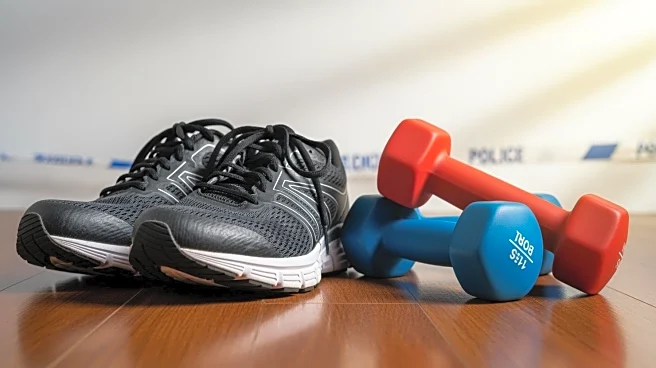What's Happening?
In recent years, American politicians have increasingly turned to social media platforms like Instagram and TikTok to showcase their fitness routines as a means of connecting with voters. This trend, described
by Jennifer Stromer-Galley, a professor at Syracuse University, is not entirely new. Historical examples include Ronald Reagan sharing his workout routine and Paul Ryan posing with dumbbells for Time magazine. The current wave of fitness-focused political posts aims to appeal to younger voters who prioritize health and fitness. Politicians use these posts to convey attributes such as attractiveness, health, and vigor, which are traditionally valued by the public. The posts often feature candidates performing exercises like bench presses, pull-ups, and other workouts, sometimes accompanied by political messages or critiques.
Why It's Important?
The use of fitness posts by politicians highlights a shift in political campaigning strategies, where personal health and physical fitness are leveraged to build a relatable and appealing image. This approach targets younger demographics who value fitness, potentially influencing their voting decisions. By associating themselves with health and vigor, politicians aim to project qualities that resonate with voters, such as strength and vitality. This trend also reflects broader societal values where physical appearance and fitness are increasingly linked to leadership qualities. As politicians continue to use social media to engage with voters, the emphasis on personal fitness may shape public perceptions and campaign strategies.
What's Next?
As the trend of fitness-focused political posts continues, it is likely that more politicians will adopt similar strategies to engage with voters. This could lead to an increase in fitness-related content during election campaigns, with candidates using workouts as a platform to discuss policy issues or criticize opponents. The effectiveness of these posts in swaying voter opinions may prompt political advisors to incorporate fitness into broader campaign strategies. Additionally, the focus on fitness may influence public discourse around health policies, as candidates who emphasize personal health may be perceived as more credible on related issues.
Beyond the Headlines
The integration of fitness into political campaigns raises questions about the authenticity and motivations behind such posts. While they may appeal to health-conscious voters, there is a risk of oversimplifying complex policy issues by focusing on personal fitness. This trend also highlights the evolving nature of political communication, where visual and personal branding play a significant role in shaping public perceptions. As politicians continue to leverage social media, the ethical implications of using personal fitness as a political tool may become a topic of debate.









